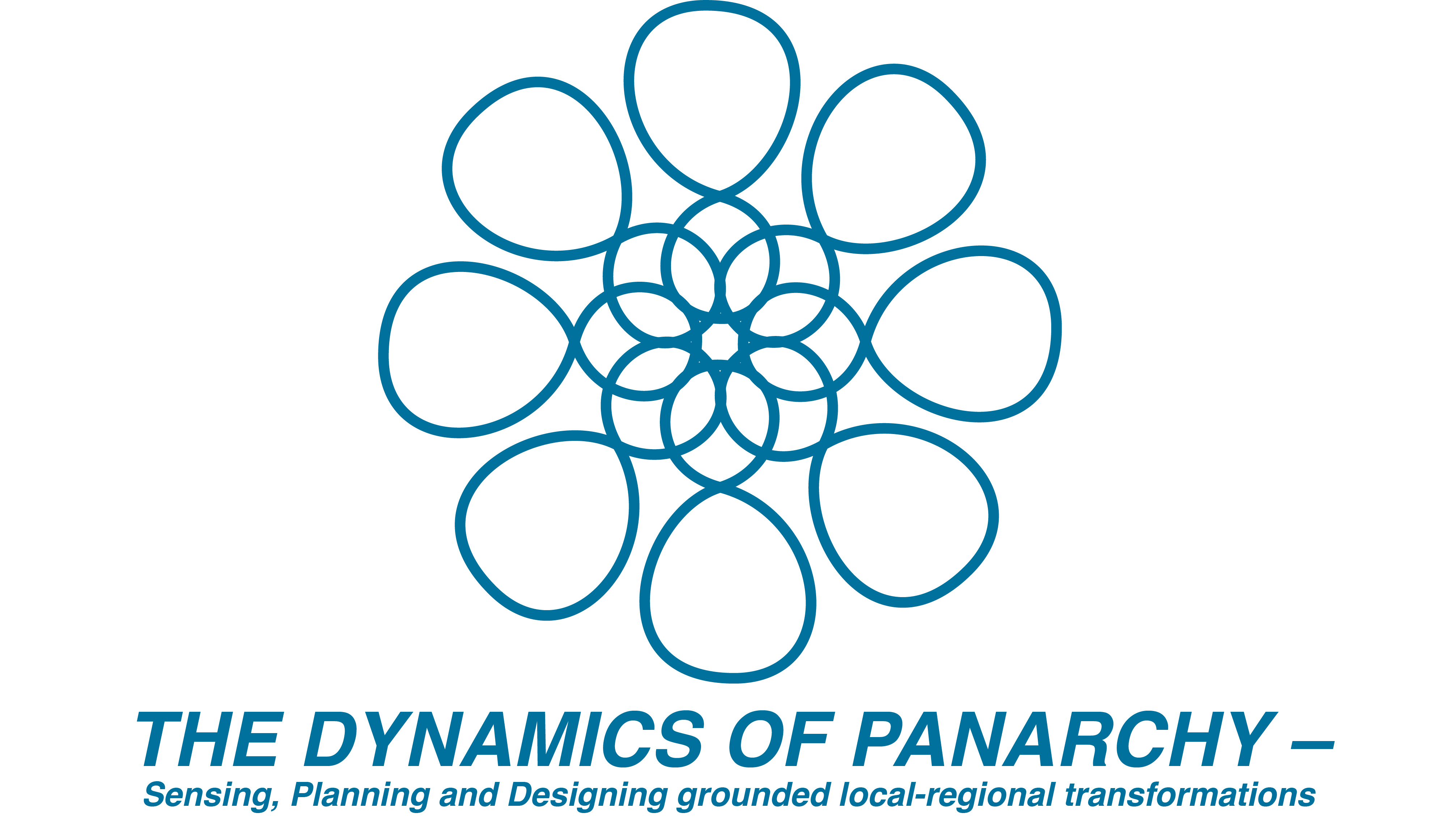
CALL FOR ABSTRACTS
23rd Planning & Complexity Thematic Meeting | 20th year of the AESOP Thematic Group Planning and Complexity
Abstract Submission Deadline (extended): Wednesday, 11 June 2025
[ Download full Call for Papers as PDF ]
THE DYNAMICS OF PANARCHY –
Sensing, Planning and Designing grounded local-regional transformations
27-28 November 2025
Chalmers University of Technology, Gothenburg, Sweden
Planning and design often remain a hierarchical and linear process of planning, implementation and maintenance that meet with increasing political ambitions for inclusion, diversity and the critique of a technocratic agenda to spatial transformations. Initiatives in both practice and research constantly seek to combine both top-down and bottom-up approaches. For example, the recent missions of the European Union to strengthen innovation and development through a combination of overall political leadership and local implementation.
The connection between complexity science and spatial planning has, for at least the last 20 years, put the “the perspective of a world in flow, which feeds dissipative systems, through which these adapt and self-organize more or less continuously” (de Roo, 2018, p.28). However, few researchers and practitioners truly engage with the panarchic dynamic of complex adaptive systems and the theoretical and methodological implications – Non-hierarchical and mutual interaction, self-organization between actors, as well as structures and scales of transformation that follow (Gunderson & Holling, 2002). Furthermore, the transfer of a panarchic and adaptive model, developed for describing ecosystems, to describing social system poses critical questions. Beside adaptation, how do we deal with sustaining a diversity of subsystems? and how do we counteract negative effects such as socio-spatial inequalities and an uneven geographic development?
We invite scholars and scholarly practitioners to contribute with research and initiatives that engage with the dynamics of local-regional spatial transformation and the relations between actors, sectors, levels and scales through the lens of complexity theory, and especially working with panarchy, self-organisation, and the non-hierarchical interaction and dynamics of multi-level planning. How can transformations be more effectively conceptualised theoretically, while being grounded in local-regional realities?
Three avenues are of interest
Designing is in itself an iterative practice between phases of speculation, assessment, and proposing. We are interested in initiatives and studies that engage with design thinking and design practices to move beyond predefined, and often stereotyped visions of sustainable and attractive urban and rural development.
Planning tends to often be seen as a hierarchic and linear process of top-down decisions, regulations and governance. However, it is also a broad repertoire of practices that can create gaps and spaces. We are interested in research that critically engage in how planning can address uneven power relations and seeks radical inclusion and re-configurations that foster diversity and pluralism.
Sensing faces challenges to embark in analyses and interpretation beyond predefined categories and spatial units, e.g. reproducing power relations and spatial configurations. We are interested in approaches that can re-frame our sensing of interdependencies between scales, and that critically analyse the local-regional dynamics of circular systems.
Timeline
- Abstract Submission Deadline: 26 May 2025 extended: Wednesday, 11 June 2025
- Notice of Acceptance: June 2025
- Extended Abstracts Submission & Registration Deadline: 3 October 2025
- Conference in Gothenburg 27-28 November 2025.
Submission details
- Target audience: Early career researchers (e.g. PhD candidates) and seniors (e.g. Professors, Seniors Researchers), practitioners with scholars' interest
- Abstract Length: up to 350 words
- Keywords: Provide 3-5 keywords relevant to your submission
- Contact information: Include your name, affiliation and email.
- References: Provide 3-5 major references relevant to your submission
- Submission: Please e-mail your abstract as a pdf-file to
This email address is being protected from spambots. You need JavaScript enabled to view it.
Keynote speakers
- Jon Norberg: Professor at Department of Ecology, Environment and Plant Sciences, Stockholm University
- Sara Brorström: Professor Department of Business Administration, Gothenburg University
Organisation and Contact
The event is organised by Nils Björling and the research area Local-Regional Transformations at Chalmers University of Technology in Gothenburg, Sweden (local organising team 2025) together with Christian Lamker and Jenni Partanen (thematic group coordinators).
Visit the local organisers at:
https://www.chalmers.se/en/departments/ace/research/local-regional-transformations/
References
- de Roo, G. (2018). Ordering Principles in a Dynamic World of Change – On social complexity, transformation and the conditions for balancing purposeful interventions and spontaneous change. Progress in Planning, 125, 1–32. https://doi.org/10.1016/j.progress.2017.04.002
- Gunderson, L. H., & Holling, C. S. (eds.) (2002). Panarchy: Understanding transformations in human and natural systems. Island Press.


